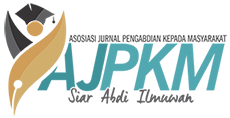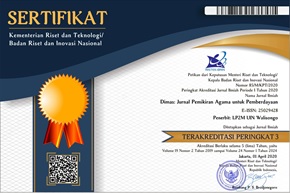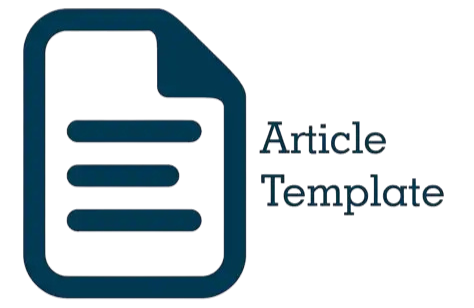Ummah Business Market (UBM): Mosque-Based MSME Empowerment Application for Optimization of SDGs in the Time of Covid-19
DOI:
https://doi.org/10.21580/dms.2021.212.9068Keywords:
Synergy, Innovation, Mosques, MSMEs, Halal IndustryAbstract
During the covid-19 pandemic, MSME business activities have decreased and have received small profits. Operations of mosques and amil institutions also experienced a decline. So, it needs an innovation that synergizes the community with MSMEs and mosques to increase the profits in economic and social activities that can encourage economic recovery. In this case, the mosque becomes the center of religious, economic, and social activities. The purpose of this study is to identify and produce a development model for the use of the Ummah Business Market (UBM) for mosque-based MSME empowerment applications and support post-Covid-19 economic recovery and poverty reduction as stated in the SDGs in goals 1 and 8. This study uses primary data with the type of action research that raises issues, makes solutions, and compiles a review of solutions from the Ummah Business Market (UBM) application process in empowering MSMEs during the pandemic. The results of this study indicate that the use and innovation of the mosque-based Ummah Business Market (UBM) application can increase operations and income for MSMEs and mosques, as well as create new jobs. In addition, able to optimize funds. Thus, benefits are obtained for economic recovery, poverty alleviation, and decent work. Ummah Business Market (UBM) also fosters a new attitude of society towards the economy and society, namely care, safe, and sharia.
Downloads
References
Andayani, I., Roesminingsih, M. V., & Yulianingsih, W. (2021). Strategi Pemberdayaan Masyarakat Pelaku UMKM Di Masa Pandemi Covid-19. Jurnal Pendidikan Nonformal, 16(1).
Damaledo, Y. D. (2021, March 2). 2 Maret 2020 Kasus Corona Pertama di Indonesia Diumumkan Tahun Lalu [Kesehatan]. Tirto.Id. https://tirto.id/2-maret-2020-kasus-corona-pertama-di-indonesia-diumumkan-tahun-lalu-gaKw
Fakhriyyah, D. D., Wulandari, Y., & Kharisma, C. (2020). Sosialisasi Digital Marketing dan Inovasi Produk pada UKM Gula Merah Guna Mempertahankan Ekonomi di Masa Pandemi Covid-19. JP2M Jurnal Pembelajaran Pemberdayaan Masyarakat, 1(4), 311–317.
Indayani, S., & Hartono, B. (2020). Analisis Pengangguran dan Pertumbuhan Ekonomi sebagai Akibat Pandemi Covid-19. Perspektif Jurnal Ekonomi Dan Manajemen Universitas Bina Sarana Informatika, 18(2).
Kurniawan, S. (2014). Masjid Dalam Lintasan Sejarah Umat Islam. Jurnal Khatulistiwa-Journal of Islamic Studies, 4(2), 169–184.
Muslim, M. (2020). PHK PADA MASA PANDEMI COVID-19. ESENSI: Jurnal Manajemen Bisnis, 23(3).
Sakti, S. A. (2021). Persepsi Orang Tua Siswa terhadap Pembelajaran Daring pada Masa Pandemi Covid 19 di Yogyakarta. Jurnal Obsesi: Jurnal Pendidikan Anak Usia Dini, 6(1), 73–81.
Satya, V. E. (2018). STRATEGI INDONESIA MENGHADAPI INDUSTRI 4.0. Info Singkat Kajian Singkat Terhadap Isu Aktual Dan Strategis Bidang Ekonomi Dan Kebijakan Publik, 10(9), 19–24.
Setiawan, B. (2021, July 15). Update Kasus Covid-19. In Update Kasus Covid-19. Kompas TV.
Sugiyono. (2016). Metode Penelitian Kuantitatif, Kualitatif, dan R&D. Alfabeta.
Sugiyono. (2019). Metode Penelitian Kuantitatif Kualitatif dan R&D. Alfabeta.
Syafii, I. (2021, June 30). Masjid Sepi Dampak Corona. In Pojok 7. JTV.
Syatar, A., Rahman, A., Amiruddin, M. M., & Haq, I. (2020). Darurat Moderasi Beragama Di Tengah Pandemi Corona Virus Desease 2019 (Covid-19). KURIOSITAS: Media Komunikasi Sosial Dan Keagamaan, 13(1).
Wahyudi, H. S., & Sukmasari, M. P. (2014). Teknologi dan Kehidupan Masyarakat. Jurnal Analisa Sosiologi, 3(1), 13–24.
Zakariah, M. A., Afriani, V., & Zakariah, M. (2020). METODOLOGI PENELITIAN KUALITATIF, KUANTITATIF, ACTION RESEARCH, RESEARCH AND DEVELOPMENT. Yayasan Pondok Pesantren Al Mawaddah Warrahmah.
Downloads
Additional Files
Published
Issue
Section
License
Copyright
The copyright of the received article shall be assigned to the journal as the publisher of the journal. The intended copyright includes the right to publish the article in various forms (including reprints). The journal maintains the publishing rights to the published articles. Therefore, the author must submit a statement of the Copyright Transfer Agreement.*)
Licensing

This work is licensed under a Creative Commons Attribution-ShareAlike 4.0 International License.
In line with the license, authors are allowed to share and adapt the material. In addition, the material must be given appropriate credit, provided with a link to the license, and indicated if changes were made. If authors remix, transform or build upon the material, authors must distribute their contributions under the same license as the original.
_______
*) Authors whose articles are accepted for publication will receive confirmation via email and send a Copyright Transfer Agreement.









